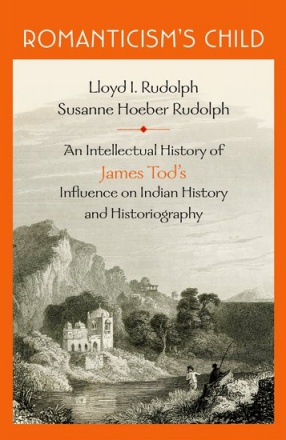
Lloyd I. Rudolph

Showing all 12 books

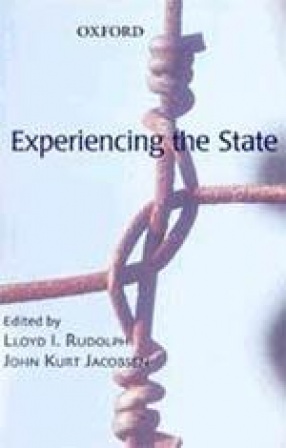
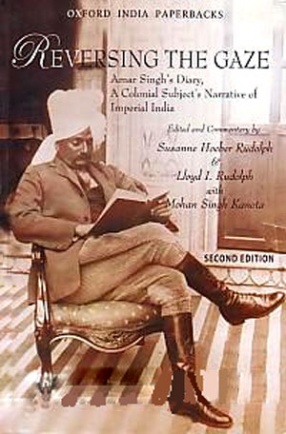
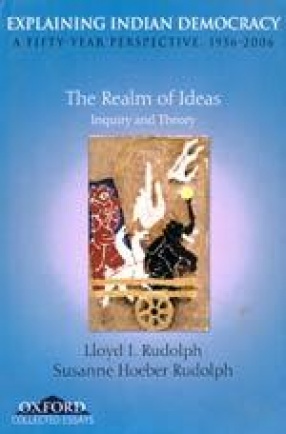

The fascination of Colonel James Tod, one of the earliest colonial ethnographers, with the cultural practices, communities and histories of the people of Rajasthan led to a meticulous compilation of information about the region and its people, whom he deeply admired. His two-volume masterwork, Annals and Antiquities of Rajasthan, published in London in 1829 and 1832, inspired generations of popular renderings of the past, including nationalist and vernacular ...
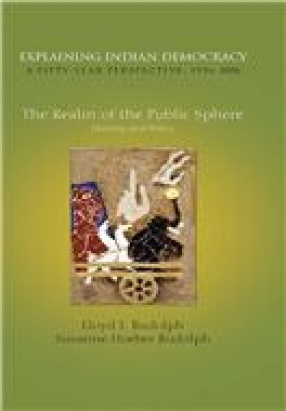
The essays in the three-volume series, Explaining Indian Democracy: A Fifty-Year Perspective, 1956-2006, span over five decades of the Rudolphs' scholarship on politics in India. This work brings out the distinctiveness of Indian democratic experience through a contextual political analysis.
The Realm of the Public Sphere, the last of the three volumes, examines varieties of identity politics—caste, region, and student; interprets two lives, Mahatma ...
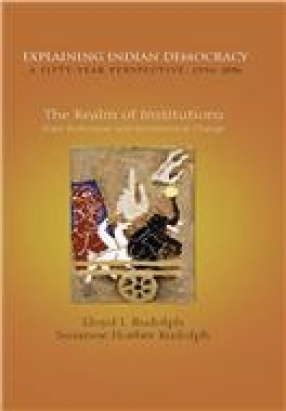
The essays in the three-volume series, Explaining Indian Democracy: A Fifty-Year Perspective, 1956-2006, span over five decades of the Rudolphs' scholarship on politics in India. This work brings out the distinctiveness of Indian democratic experience through a contextual political analysis.
The Realm of Institutions, the second of the three volumes, presents the Rudolphs' work on state formation and institutional change. By comparison with the Eurocentrism and ...
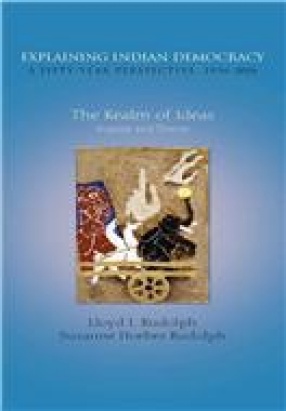
The essays in the three-volume series, Explaining Indian Democracy: A Fifty-Year Perspective, 1956-2006, span over five decades of the Rudolphs' scholarship on politics in India. This work brings out the distinctiveness of Indian democratic experience through a contextual political analysis.
The Realm of Ideas, the first of the three volumes, explores how modes of inquiry, kinds of knowledge, construction of categories, and historical context shape political ...
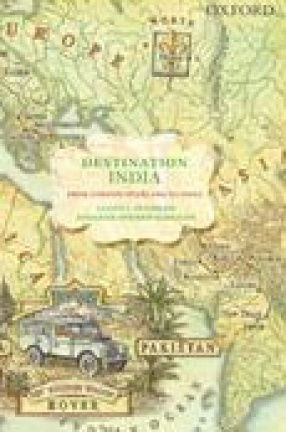
In the summer of 1956, Lloyd Rudolph and Susanne Rudolph traveled 5,000 miles from London to Jaipur in a Land Rover and recorded their impressions and experiences of people and places encountered on the way. Their passage to India marked the beginning of an academic career spanning over five decades spent researching, writing, and teaching about the country.
Destination India is an account of the Rudolphs' journey 'East of Suez'—across Western Asia, Turkey, ...

This provocative volume on the state departs markedly from a conventional analysis that universalizes and standardizes what the state is, does, and means. The authors engage state and stateness as it is encountered in everyday life, ranging from urban ad village life to big dams, war, torture, hospital treatment, cinema attendance, and art exhibitions. The essays locate the state in time, space, and circumstances so that its meaning becomes contingent and ...
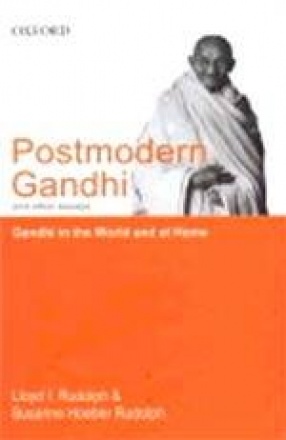
The Gandhi of the loincloth and the walking stick seems an unlikely advocate of postmodernism. In eight seminal essays, Lloyd and Susanne Rudolph argue against equating Gandhi with traditionalism and for reading him as a postmodern thinker. In the first chapter, the Rudolphs contend that Gandhi's critique of 'modern civilization' in his 1909 book, Hind Swaraj was an opening salvo of the postmodern era. His autobiography, The story of My Experiments with Truth, ...

Amar Singh reverses the gaze. A colonial subject contemplates an imperial other. He begins writing at twenty, producing over forty-four years what may well be one of the world's longest continuous diaries. These selections from the years 1898 to 1905 are the work of the young Amar Singh. He records his sense of discovery and surprise at diverse sites - the Jodhpur court, the women's quarters of the Jaipur haveli, Lord Curzon's Imperial Cadet Corps. Through daily ...

The essays in the three-volume series, Explaining Indian Democracy: A Fifty-year Perspective, 1956-2006, span over five decades of the Rudolphs' scholarship on Indian politics. The first published essay analyses the results of one of the first random sample surveys done in India. The last argues for methodological pluralism and 'situated knowledge' in American political science as against the universal methodological and knowledge claims of rational choice. The ...
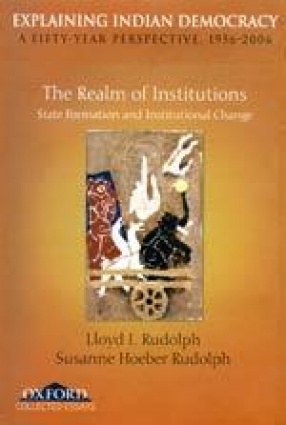
The essays in the three-volume series, Explaining Indian Democracy: A Fifty-Year Perspective, 1956-2006, span over five decades of the Rudolph's scholarship on Indian politics. The first published essay analyses the results of one of the first random sample surveys done in India. The last argues for methodological pluralism and 'situated knowledge' in American political science as against the universal methodological and knowledge claims of rational choice. The ...
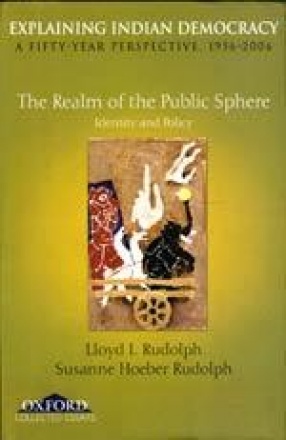
The essays in the three-volume series, Explaining Indian Democracy: A Fifty-Year Perspective, 1956-2006, span over five decades of the Rudolph's scholarship on Indian politics. The first published essay analyses the results of one of the first random sample surveys done in India. The last argues for methodological pluralism and 'situated knowledge' in American political science as against the universal methodological and knowledge claims of rational choice. The ...
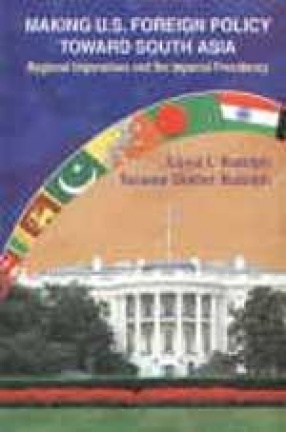
This book takes a historical and analytic view of foreign policy making by the US toward South Asia, with special emphasis on the imperial presidencies of Lyndon Johnson, Richard Nixon and George W. Bush. Analysing the role of imperative and deliberative coordination in the making of US foreign policy, it examines the difficulties of coordinating policies across several divides--from crises to more routine situations, from one function to another, from one state ...
